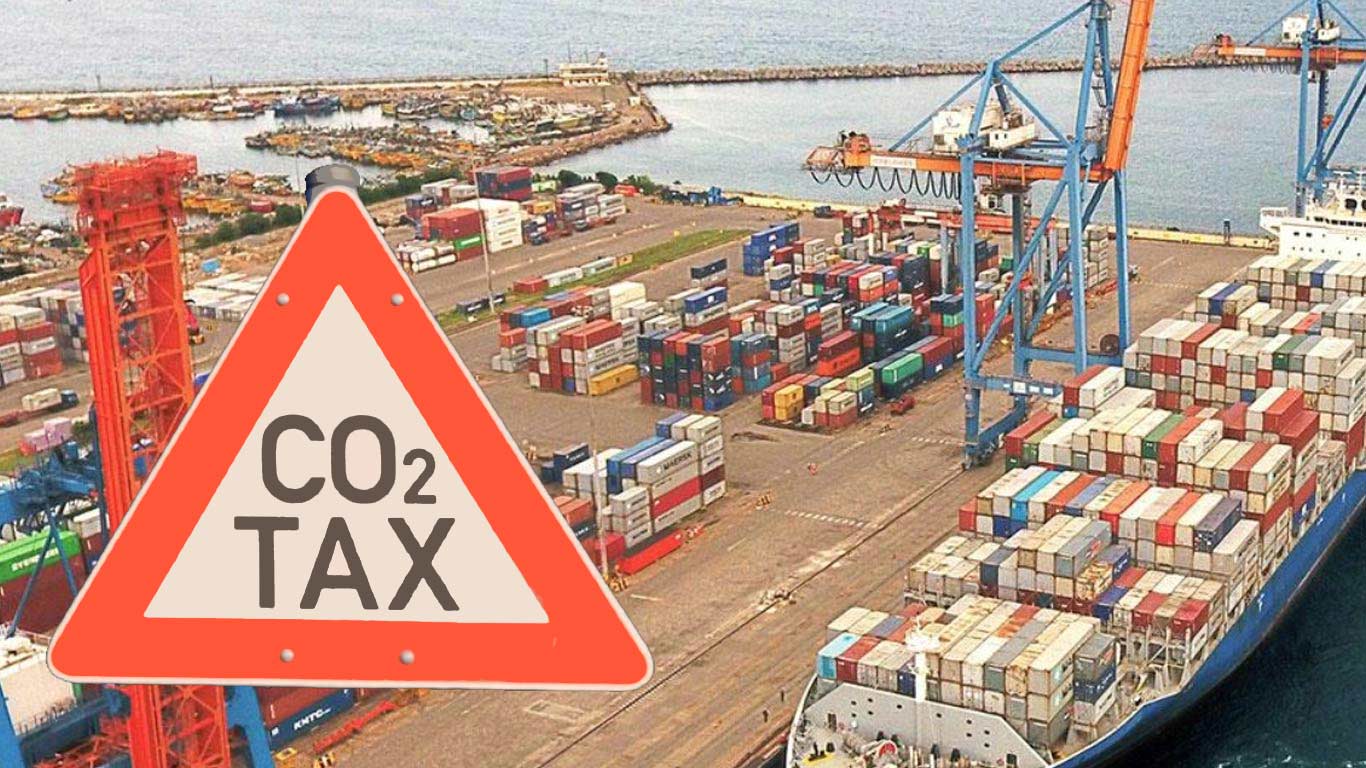- Courses
- GS Full Course 1 Year
- GS Full Course 2 Year
- GS Full Course 3 Year
- GS Full Course Till Selection
- Online Program
- GS Recorded Course
- NCERT (Recorded 500+ Hours)
- Polity Recorded Course
- Geography Recorded Course
- Economy Recorded Course
- AMAC Recorded Course
- Modern India, Post Independence & World History
- Environment Recoded Course
- Governance Recoded Course
- Science & Tech. Recoded Course
- International Relations and Internal Security Recorded Course
- Disaster Management Module Course
- Ethics Recoded Course
- Essay Recoded Course
- Current Affairs Recoded Course
- CSAT
- 5 LAYERED ARJUNA Mentorship
- Public Administration Optional
- ABOUT US
- OUR TOPPERS
- TEST SERIES
- FREE STUDY MATERIAL
- VIDEOS
- CONTACT US
First-Ever Global Carbon Tax on Shipping Industry
First-Ever Global Carbon Tax on Shipping Industry
16-05-2025

Context:
- In April 2025, India joined 62 other nations in voting in favour of the world’s first global carbon tax on the shipping industry. It was adopted by the International Maritime Organization (IMO) – a specialized UN agency.
- The tax aims to reduce greenhouse gas (GHG) emissions from maritime transport, which accounts for nearly 3% of global emissions and had been excluded from international climate frameworks like the Paris Agreement.
Key Highlights of the IMO Carbon Tax:
- Implementation Year: 2028
- Applicability: Ships above 5,000 gross tonnage (representing 85% of shipping CO₂ emissions)
- Tax Range: USD 100 to 380 per tonne of CO₂ emitted, based on compliance levels.
- Expected Revenue: Up to USD 40 billion by 2030, earmarked exclusively for decarbonizing maritime transport.
- Framework Status: Approved in April 2025, formal adoption expected in October 2025.
Significance:
- Historic First: The first global tax on GHG emissions targeting a specific international sector.
- Decarburization Push: Intended to accelerate the transition to cleaner fuels and technologies in shipping.
- India’s Role: India, alongside China, Brazil, South Africa, EU nations, Norway, Japan, and Singapore, supported the resolution, indicating a growing global consensus for climate action in the maritime sector.
- IMO’s Role: As the UN’s maritime agency, IMO aims to regulate emissions, enhance safety, and align with SDG 14 (Life Below Water).
Criticism and Limitations:
- Limited Emission Reduction: Projected to reduce shipping emissions by only 10% by 2030, against IMO’s own target of 20-30%.
- No Broader Climate Finance: Funds are limited to maritime decarbonisation, with no provision for climate adaptation or support to vulnerable nations.
- Lack of Transparency: Small island nations like Tuvalu and Vanuatu criticized the non-inclusive negotiation process and lack of financial equity.
- Opposition and Abstentions:
- Opposed by: Saudi Arabia, UAE, Russia, Venezuela (oil-dependent economies).
- Abstained: United States (did not participate in negotiations or voting).
India and Maritime Sector:
- Fleet Strength: 1,530 ships as of 2023; ranked third globally in ship recycling.
- Port Infrastructure: Cargo capacity increased by 87% (from 871.52 million tonnes in 2014–15 to 1,629.86 million tonnes in 2023–24).
- Vision 2047: Aims to be among the top 5 shipbuilding nations globally.
About Carbon Tax:
- Definition: A Pigouvian tax levied on carbon content of fuels to curb GHG emissions.
- Purpose: Discourage fossil fuel use, promote clean technologies, and fund green transitions.
- Mechanism: Levied per tonne of CO₂ emitted or embedded in fuels.
- Types: Emissions tax, energy tax, cap-and-trade, carbon tariff, offset-linked pricing, fuel excise duty.
Carbon Tax in India:
- No formal nationwide carbon tax yet.
- Clean Energy Cess (2010) on coal production or import: It was initially ₹50/tonne and then increased to ₹400/tonne. It was used to fund the National Clean Energy Fund.
- Linked schemes: PAT Scheme, National Solar Mission, EV adoption, etc.
- India is also working on establishing a Carbon Credit Trading Scheme and a Voluntary Carbon Market.
About the International Maritime Organization (IMO):
|
Attribute |
Details |
|
Founded |
1948 (Operational since 1959) |
|
Headquarters |
London, UK |
|
Membership |
176 Member States (including India), 3 Associate Members |
|
Functions |
Maritime safety, pollution control, legal regulations, technical cooperation |
|
Major Conventions |
MARPOL (pollution), SOLAS (safety), STCW (training), BWM (ballast water) |
Conclusion:
The global carbon tax on shipping represents a landmark step in international climate governance. While it reflects a new era of environmental accountability for the maritime sector, challenges remain in terms of transparency, ambition, and equitable revenue use. For India, the policy aligns with its clean energy transition and evolving maritime ambitions.
|
Also Read |
|
UPSC Foundation Course |
|
| UPSC Monthly Magazine | CSAT Foundation Course |




